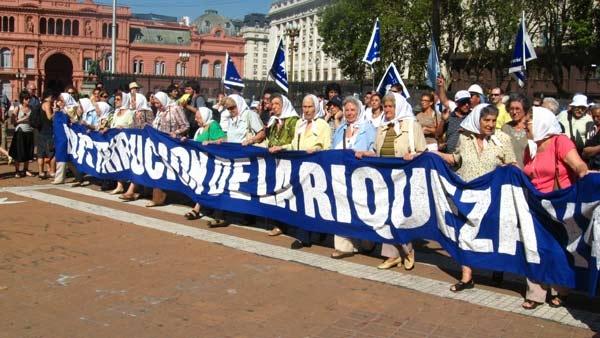In the shadow of Argentina’s brutal military dictatorship, a courageous group of women-known today as the Grandmothers of Plaza de Mayo-refused to be silenced. Their relentless pursuit of truth and justice has uncovered one of the darkest chapters in the nation’s history: the systematic abduction and disappearance of thousands of children from political prisoners. This article explores how their unwavering determination brought global attention to a stolen generation and reshaped the fight for human rights in Argentina.
The Silent Struggle Ignites a Movement
In the shadow of Argentina’s brutal military dictatorship, a group of resilient grandmothers began an extraordinary quest to reclaim their stolen grandchildren. These women, no strangers to grief and hardship, transformed their silent pain into a powerful movement that transcended generations. With unwavering determination, they defied fear and state repression, adopting the tagline “They refused to be silent.” Their perseverance sparked a nationwide awakening to the atrocities committed during the “Dirty War,” bringing international attention to the plight of thousands of missing children.
Armed with courage and a relentless sense of justice, the grandmothers employed innovative methods to uncover the truth. They collaborated with forensic experts, human rights organizations, and legal entities, pioneering the use of DNA testing to identify kidnapped children. Their efforts led to the recovery of hundreds of identities and reunited families long torn apart. The movement became more than a search for lost kin-it evolved into a beacon of human rights advocacy.
| Key Actions | Impact |
|---|---|
| Public marches and vigils | Raised global awareness |
| Legal battles for recognition | Created legal precedents |
| DNA identification program | Reunited over 130 children |
| International advocacy | Inspired worldwide human rights movements |
- Community solidarity: Fostered networks to support affected families.
- Memory preservation: Established museums and archives honoring victims.
- Political influence: Pressured governments to acknowledge past crimes.
Unraveling the Legacy of Argentina’s Stolen Generation
During Argentina’s brutal military dictatorship from 1976 to 1983, thousands of children were forcibly taken from their parents-victims of a systematic campaign to erase dissent by eradicating entire family lines. For decades, the disappearances remained shrouded in silence and fear. But a group of determined women, later known as the Grandmothers of Plaza de Mayo, defied the regime’s repression and embarked on a relentless quest to recover their stolen grandchildren. Their mission combined grassroots activism, scientific innovation through DNA testing, and international legal efforts, challenging both political cover-ups and societal indifference.
- Identification breakthroughs: Collaboration with geneticists created the world’s first national DNA database to match missing children with biological relatives.
- Legal victories: Secured indictments against perpetrators, setting precedents in cases of enforced disappearances and human rights abuses.
- International impact: Inspired similar human rights movements worldwide, emphasizing the fight against state terrorism.
| Year | Recovered Children | Cases Ongoing |
|---|---|---|
| 1987 | 1 | 50+ |
| 2000 | 86 | 20 |
| 2024 | 130+ | 10 |
Empowering Justice Through Memory and Advocacy
Argentina’s Grandmothers of Plaza de Mayo emerged as an unwavering force against the military dictatorship’s brutal campaign of forced disappearances in the late 1970s. Through relentless determination, they embarked on a journey to reclaim the identities of children taken from their detained mothers, refusing to let their trauma be buried by silence. Their movement not only brought global attention to human rights violations but also laid a foundation for restorative justice through the power of memory.
With the advancement of DNA testing and international advocacy, the grandmothers have successfully identified over 130 stolen children, reuniting families and restoring histories lost to state terror. Their efforts demonstrate how grassroots activism can harness:
- Persistent legal action to challenge government denials
- Community engagement to support survivors and raise awareness
- Innovative forensic science as a tool for truth and reconciliation
| Year | Children Reunited | Milestone |
|---|---|---|
| 1984 | 2 | First identification using blood testing |
| 1992 | 39 | DNA technology introduced |
| 2020 | 134+ | Current total of identified grandchildren |
Closing Remarks
The courageous determination of Argentina’s grandmothers not only brought international attention to the human rights abuses committed during the nation’s darkest years but also paved the way for justice and healing. Their unwavering refusal to be silent has ensured that the stories of the stolen generation will not be forgotten, serving as a powerful reminder of the resilience of those who fight for truth and accountability. As Argentina continues to grapple with this painful legacy, the grandmothers’ legacy endures-testament to the strength of memory and the importance of standing against oppression.




